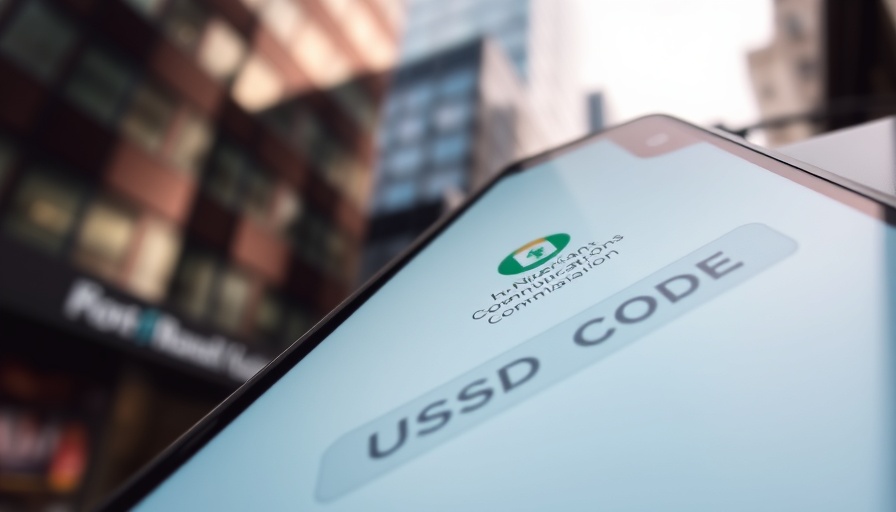
Understanding the NCC's Bold USSD Charge Directive
The recent directive from the Nigerian Communications Commission (NCC) has ignited vigorous debates across the telecommunications and banking sectors. The move to have USSD service charges directly deducted from airtime rather than via bank billing is causing ripples in the way consumers manage their finances, especially in a country where mobile technology is a lifeline for many. But what does this actually mean for the average user, and how does it reflect the ongoing tumultuous relationship between banks and telecom providers in Nigeria?
In 'New NCC Directive: USSD Charges Now Deducted Straight from Airtime', the discussion dives into the significant changes in how USSD charges will be applied, raising critical insights that warrant a deeper analysis.
A Shift in the Payment Paradigm
The NCC's decision stems from a protracted dispute over the handling of USSD charges, a crucial technology that has allowed mobile banking and money transfers to flourish in Nigeria. Previously, banks were responsible for collecting fees associated with USSD transactions, which often led to a lack of transparency and accountability on both sides. This new directive effectively shifts this responsibility back to telecom operators, who argue that they maintain the infrastructure necessary for USSD transactions.
Why Now? The Context Behind the Directive
The timing of this directive is pivotal. With telecom companies claiming their share of the financial pie amidst growing transactional volumes — estimated to reach a staggering 2.16 trillion naira as of last year — the NCC is positioning this move as a way to eliminate ambiguity in charges and enhance transparency. However, critics argue that this drastically shifts the burden onto consumers, who are unexpectedly bearing the costs directly, especially as inflation continues to rise.
Impact on Users: What Lies Ahead?
For the average Nigerian, the ramifications of this directive are twofold. On the one hand, this system may bring clarity as users will clearly see what they are being charged for every transaction. However, with a large portion of the population already grappling with economic pressures, the decision to charge airtime instead of through bank transactions may discourage usage among lower-income individuals who rely heavily on mobile banking—particularly small business owners and artisans. As a result, the data suggests there could be a decline in USSD usage, as these groups might find it increasingly difficult to justify the added costs per transaction.
Addressing the Tension: Can Banks and Telcos Collaborate?
The fraught relationship between banks and telecom companies in Nigeria has been marked by assertions of entitlement over USSD fees. Historically, banks contested that they played a vital role in the technology's adoption; yet, the telcos assert that they are the ones who built and maintain the necessary infrastructure. The NCC's directive reflects an attempt to alleviate this stalemate by ensuring that both parties are accountable for their roles in facilitating mobile transactions. As a result, the question remains whether this will foster collaboration or deepen existing tensions.
Is There a Future Beyond USSD?
Considering advances in technology, the long-term relevance of USSD is increasingly under scrutiny. With greater smartphone penetration and the availability of internet-enabled financial solutions, the trajectory could indicate a gradual phase-out of USSD technology. However, given that many Nigerians still lack access to smartphones or reliable internet, it is likely that USSD will remain a key transactional tool for the foreseeable future.
Conclusion: Call for Consumer Empowerment
As stakeholders navigate these changes, it is crucial for consumers to stay informed and adaptable. Holding both banks and telecom operators accountable for providing a service that is efficient and financially fair will be vital. This directive from the NCC is a mere stepping stone towards greater accountability and transparency within Nigeria's burgeoning digital financial landscape. Consumers must remain vigilant and advocate for services that truly cater to their needs and financial reality, demanding better from their service providers.
 Add Row
Add Row  Add
Add 


 Add Row
Add Row  Add
Add 

Write A Comment